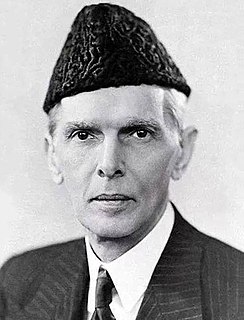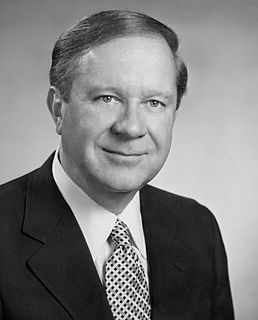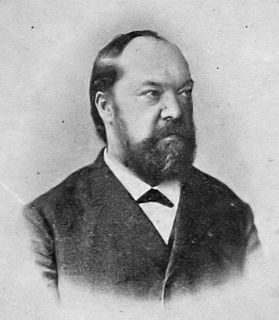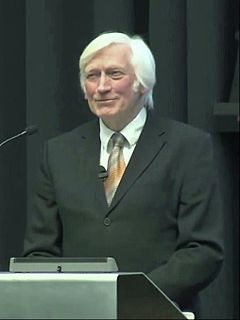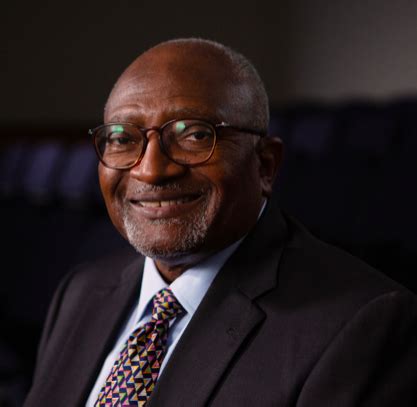Top 1200 Economic Issues Quotes & Sayings - Page 18
Explore popular Economic Issues quotes.
Last updated on December 19, 2024.
I am very much into politics, but what interests me is sacred principles applied to that area. You know, many people are interested in alternative health who are never going to become doctors, or practitioners. That is how I am about politics. I am interested in the intersection of the Spiritual and the political - how spiritual principles apply to the social and political issues of our day. For me, the spiritual realm, is a more powerful place to speak from on those issues.
It is the political task of the social scientist — as of any liberal educator — continually to translate personal troubles into public issues, and public issues into the terms of their human meaning for a variety of individuals. It is his task to display in his work — and, as an educator, in his life as well — this kind of sociological imagination. And it is his purpose to cultivate such habits of mind among the men and women who are publicly exposed to him. To secure these ends is to secure reason and individuality, and to make these the predominant values of a democratic society.
The Western world, in spite of its advantages of mechanization and industrial efficiency is today in a worse mess than ever before in history. The adoption Western economic theory and practice will not help us in achieving our goal of creating a happy and contented people. We must work our destiny in our own way and present to the world an economic system based on true Islamic concept of equality of manhood and social justice.
The cash register did more for human morality than the Congregational Church. It was a really powerful phenomenon to make an economic system work better, just as, in reverse, a system that can be easily defrauded ruins a civilization. A system that's very hard to defraud, like a cash register, helped the economic performance of a civilization by reducing vice, but very few people within economics talk about it in those terms.
The millennium development goals are important, both morally and economically, because much of the world's population maybe is as much as a third of the world's population hasn't yet reached the level of economic development where we begin to get a dissociation from people's economic status and their reports about personal happiness. So we really do need to do much more and much more effectively in order to give everyone the kind of basis for which they can have good vibes.
Even in the era of AIDS, sex raises no unique moral issues at all. Decisions about sex may involve considerations about honesty, concern for others, prudence, and so on, but there is nothing special about sex in this respect, for the same could be said of decisions about driving a car. (In fact, the moral issues raised by driving a car, both from an environmental and from a safety point of view, are much more serious than those raised by sex.)
There is no worse material poverty than one that does not allow for earning one’s bread and deprives one of the dignity of work. Youth unemployment, informality, and the lack of labor rights are not inevitable; they are the result of a previous social option, of an economic system that puts profit above man; if the profit is economic, to put it above humanity or above man, is the effect of a disposable culture that considers the human being in himself as a consumer good, which can be used and then discarded.
Just as the end goal of socialist revolution was not only the elimination of the economic class privilege but of the economic class distinction itself, so the end goal of feminist revolution must be, ... not just the elimination of the male privilege, but of the sex distinction itself; genital differences between human beings would no longer matter culturally.
A lot of my books deal with very controversial issues that most people often don't want to talk about, issues that, in my country, are more likely to get put under the carpet than get discussed. And when you talk about moral conundrums, about shades of gray, what you're doing is asking the people who want the world to be black and white to realize instead that maybe it's all right if it isn't. I know you'll learn something picking up my books, but my goal as a writer is not to teach you but to make you ask more questions.
Men have always been a prey to distractions, which arethe original sins of the mind; but never before today has an attempt been made to organize and exploit distractions, to make of them, because of their economic importance, the core and vital center of human life, to idealize them as the highest manifestations of mental activity. Ours is an age of systematized irrelevances, and the imbecile within us has become one of the Titans, upon whose shoulders rests the weight of the social and economic system
Like the guy I was dating. White, liberal, educated. I went to meet his family and I think that they probably didn't know they had a problem with it until he walked in with me. And they definitely had issues. Mom had issues with it. Could not, didn't want to see her son. And I don't think she had anything against me. But it was about her son bringing me home. And I felt that for the first time. I was like, 'Wow, that's deep.' It's really simple: I don't fit their picture.
Times of economic crises can change what the competitive landscape looks like, because when, for example, you have boom times, capital is easy to come by, growth is easy, sometimes what you focus on is, you know, how to accelerate in the boom. During economic crises, the question is, the companies that come out of, you know, that are sailing through that with the best liquidity, both assets on the balance sheet, making money, ability to grow their businesses, get a disproportionate competitive advantage.
I'm not expecting a big sell-off but I do think that if we don't have a move toward economic growth and policies that will promote economic growth and get us out of this 2 percent world - we really need to see 4 percent, 5 percent - to see jobs created, and if we don't see that longer-term, yeah the market will sell-off...[but] I do think things are getting better. It's just been very slow.
Now here's somebody who wants to smoke a marijuana cigarette. If he's caught, he goes to jail. Now is that moral? Is that proper? I think it's absolutely disgraceful that our government, supposed to be our government, should be in the position of converting people who are not harming others into criminals, of destroying their lives, putting them in jail. That's the issue to me. The economic issue comes in only for explaining why it has those effects. But the economic reasons are not the reasons.
There is an alternative to terror. It is called, in the political order, democracy. In the economic order, it is called the dynamic enterprise economy. (...) It empowers poor people from the bottom up. (...) A dynamic economic sector is the poor's best hope of escaping the prison of poverty. It is the only system so far known to human beings to take poor people and make them, quite soon, middle class, and some of them even (horrors!) rich.
The economic system that the United States has is an evil empire. It's an economic system that's not fair, not just, and it's not democratic. And it will fall just like communism fell. The richest 1 percent now own 50 percent of the wealth. It didn't use to be that way. The average CEO 20 years ago made 20 times as much as the average employee. Now they make 212 times as much.
Bring on those tired, labor-plagued, competition-weary companies and ESOP will breathe new life into them. They will find ESOP better than Geritol. It will revitalize what is wrong with capitalism. It will increase productivity. It will improve labor relations. It will promote economic justice. It will save the economic system. It will make our form of government and our concept of freedom prevail over those who don't agree with us.
Problems, however, are rarely solved on the spur of the moment. They must be organized and dissected, then key issues isolated and defined. A period of gestation then sets in, during which these issues are mulled over. You put them in your mind and consciously or unconsciously work at them at odd hours of the day or night - even at work. It is somewhat analogous to trying to place a name on the face of someone you've met before. Often the solution to a problem comes to you in much the same way you eventually recall the name.
Economic progress means the discovery and application of better ways of doing things to satisfy our wants. The piping of water to a household that previously dragged it from a well, the growing of two blades of grass where one grew before, the development of a power loom that enables one man to weave ten times as much as he could before, the use of steam power and electric power instead of horse or human power - all these things clearly represent economic progress.
There's no real objection to escapism, in the right places... We all want to escape occasionally. But science fiction is often very far from escapism, in fact you might say that science fiction is escape into reality... It's a fiction which does concern itself with real issues: the origin of man; our future. In fact I can't think of any form of literature which is more concerned with real issues, reality.
It doesn't have the ability to think rationally this economic model. It thinks like a drug addict: 'Where can I get my next fix?' It doesn't learn wisely. Any kind of measure of natural wisdom would be: you make a mistake, you correct it the next time around. But a drug addict feels terrible... and then says: 'I want more'. Unfortunately we have an economic model that thinks like a crack addict.
For the past three years, the CIVIX Student Budget Consultation has helped us to better understand the most pressing national issues for young Canadians. I am delighted to note that on key issues, such as balancing the budget, debt reduction, and lowering taxes, we stand in step with the thousands of students who participated in this initiative from coast to coast to coast. I want to thank the students and teachers for investing their time and energy in this worthwhile initiative. Their enthusiastic participation inspires great hope for Canada's future.
When I first saw China, there were no automobiles. There were no supermarkets. There were no high-rise buildings. There were no consumer goods. There were no restaurants that were at least accessible that foreigners could see. It was a Stalinist society, and a very poor Stalinist society. So the economic system has totally changed, and the private sector in the economic system is now the dominant sector. It didn't exist at all as late as 1979.
Library of the Works of Ludwig von Mises”. Here is an article he wrote in 1951, some two years after his magnum opus Human Action appeared, where is lays out his case in a more popular form. The money sentences are “Economic theory has demonstrated in an irrefutable way that a prosperity created by an expansionist monetary and credit policy is illusory and must end in a slump, an economic crisis. It has happened again and again in the past, and it will happen in the future, too.
The inflow of capital from the developed countries is the prerequisite for the establishment of economic dependence. This inflow takes various forms: loans granted on onerous terms; investments that place a given country in the power of the investors; almost total technological subordination of the dependent country to the developed country; control of a country's foreign trade by the big international monopolies; and in extreme cases, the use of force as an economic weapon in support of the other forms of exploitation.
We are under the stifling regulation and taxes of a predominantly left-wing type of thinking and philosophy. The eight years of Barack Obama have shrouded this country in punitive regulations. We haven't had economic growth higher than one and a half percent for the last eight or nine years, and that was done on purpose. There have been robust times in the past, and there are a lot of people right now that are doing well and are growing. But generally it ought to be much better in the past. There needs to be an economic revival.
Since man does not create physical matter, those who handle material objects in the production process are not producers in that sense. Economic benefits result from the transformation of matter in form, location, or availability (intellectually or temporally). It is these transformations that create economic benefits valued by consumers, and whoever arranges such transformations contributes to the value of things, whether his hands actually come into contact with physical objects or not.
Yes, NFL players deserve to be paid well. Unfortunately, economic realities are forcing everyone to make tough choices and the NFL is no different. These are not easy negotiations, but the outcome can be positive. If both sides give a little, everyone, including fans, will get a lot and the game will improve through innovation. Even in difficult economic times, a new CBA presents us with the opportunity to secure the future of our game.
I think that one of the things that we all agree to is that the touchstone for economic policy is, does it allow the average American to find good employment and see their incomes rise; that we can't just look at things in the aggregate, we do want to grow the pie, but we want to make sure that prosperity is spread across the spectrum of regions and occupations and genders and races; and that economic policy should focus on growing the pie, but it also has to make sure that everybody has got opportunity in that system.
If I could say something about Capricornia, and it came out in your previous report, there is no doubt that the end of the mining boom has led to an economic downturn in central Queensland, and that is why people in Capricornia, and elsewhere in central Queensland too, are so desperate for a government that will protect their jobs and create new opportunities for jobs in the future. And that is why [Malcolm] Turnbull government's message of jobs and growth and its six point economic plan is so important to them.
There's more and more recognition that a carbon economy is dangerous to us economically. And there is increasing recognition that renewable fuels have economic value as well as obvious value for our health and our well-being and our survival. In fact, as you know, the economic revolution in renewable fuels has been impressive. It really had not been anticipated.
The greatest economic minds of the 19th century, all of them without exception, considered economic growth as a temporary necessity. When all human needs are satisfied, then we will have a stable economy, reproducing every year the same things. We will stop straining ourselves worrying about development or growth. How naïve they were! One more reason to be reluctant about predicting the future. No doubt they were wiser than me, but even they made such a mistake!
Student loans have been helpful to many. But they offer neither incentive nor assistance to those students who, by reason of family or other obligations, are unable or unwilling to go deeper into debt. ... It is, moreover, only prudent economic and social policy for the public to share part of the costs of the long period of higher education for those whose development is essential to our national economic and social well-being. All of us share in the benefits - all should share in the costs.
We need economic policies in the U.S. that produce jobs, first of all, but good jobs, second of all. Believe it or not, Germany, a country characterized by high wages, strong unions, a social safety net, and so forth is the second largest exporter (after China) in the world. The idea that the only way to succeed is by eliminating vacations, sick days, worker protections, and so forth is simply belied by the competitiveness rankings produced by the Economist magazine's intelligence unit and by the World Economic Forum.
What I wanted to do was put a woman of color, front and center, in my movie combining a lot of themes that were relevant to both men and women. I actively wanted her to carry the weight of this movie because I'm a woman. And I actively wanted to explore many of the issues that affected her as a woman of color. That was very important to me. And although these issues affect some women of color, I don't think they're only of interest to women of color. They're of universal interest.
There are all sorts of institutions in the economic world which depart from the simple price/market model which I worked on in an earlier incarnation and which has been sort of the mainstream of economic theories since Adam Smith and David Ricardo. There are all sorts of contractual relations between firms and individuals which do not conform to the simple price theory - profit-sharing schemes and so forth - and the explanation for these suddenly became clear. We now understand why these emerged and that they are based on differences in information in the economy.
It is sometimes suggested that the [Nazi economic] recovery was a product of a specific fascist economic strategy, which distinguished it from the recovery efforts of other capitalist states. While few would disagree that the Nazi regime had a number of clear ideological preferences when it came to the economy, the policies pursued in 1933 had much in common with those adopted in other countries, and with the policies of the pre-Hitler governments.
A party should not contain utterly incongruous elements, radically divided on the real issues, and acting together only on false and dead issues insincerely painted as real and vital. It should not in the several States as well as in the Nation be prostituted to the service of the baser type of political boss. It should be so composed that there should be a reasonable agreement in the actions taken by it both in the Nation and in the several States. Judged by these standards, both of the old parties break down.
The various forms of education or ‘normalization’ imposed upon an individual consist in making him or her change points of subjectification, always moving towards a higher, nobler one in closer conformity with the supposed ideal. Then from the point of subjectification issues a subject of enunciation, as a function of a mental reality determined by that point. Then from the subject of enunciation issues a subject of the statement, in other words, a subject bound to statements in conformity with a dominant reality
Most of us have grown up, you know, I think there are very few people who have grown up in a home that was, like, super normal. You know, we all have dispositions because maybe you didn't have a mom or you didn't have a dad, maybe your mom died early or maybe mom and dad argued or they got a divorce or who knows? You have issues that maybe you've started younger or maybe you have your own issues because you have them.
American national security and American economic interests, of course - every president, every secretary of state - that is the primary goal. As you are in this job and in the work, you begin to see, though, that in the long run, both American economic interests and American national security are better served when there are other decent countries in the world who are both your allies and even when your adversaries are acting more decently.
Housing has always been a key to Great Resets. During the Great Depression and New Deal, the federal government created a new system of housing finance to usher in the era of suburbanization. We need an even more radical shift in housing today. Housing has consumed too much of our economic resources and distorted the economy. It has trapped people who are underwater on their mortgages or can't sell their homes. And in doing so has left the labor market unable to flexibly adjust to new economic realities.
Radicals, on the other hand, want to advance from the jungle of laissez-faire capitalism to a world worthy of the name of human civilization. They hope for a future where the means of economic production will be owned by all of the people instead of just a comparative handful. They feel that this minority control of production facilities is injurious to the large masses of people not only because of economic monopolies but because the political power inherent in this form of centralized economy does not augur for an ever expanding democratic way of life.
It seems to me that making escapist films might be a better service to people than making intellectual ones and making films that deal with issues. It might be better to just make escapist comedies that don't touch on any issues. The people just get a cool lemonade, and then they go out refreshed, they enjoy themselves, they forget how awful things are and it helps them - it strengthens them to get through the day.
Student debt is structured to be a burden for life. The indebted cannot declare bankruptcy, unlike Donald Trump. Current student debt is estimated to be over $1.45 trillion. There are ample resources for that simply from waste, including the bloated military and the enormous concentrated private wealth that has accumulated in the financial and general corporate sector under neoliberal policies. There is no economic reason why free education cannot flourish from schools through colleges and university. The barriers are not economic but rather political decisions.
Many good Christians are confused about complex social issues of our day, such as doctor-assisted death or medical research which uses stem cells from human embryos. They wonder, 'Why shouldn't science use discarded fetuses for research?' And if someone finds his medical condition intolerable and hopeless, 'why shouldn't he have the legal right to end his life?' Although the Bible does not address these issues in particular, it does provide guiding insights.
The ideals and the values of the United States inspired the entire world. I don't think any of us can say that our standing in the world now, the way children around the world look at the United States, is the same. And part of what we need to do is to send a message to the world that we are going to invest in issues like education, we are going to invest in issues that relate to how ordinary people are able to live out their dreams. And that is something that I'm going to be committed to as president of the United States.
poverty has no causes. Only prosperity has causes. Analogically, heat is a result of active processes; it has causes. But cold is not the result of any processes; it is only the absence of heat. Just so, the great cold of poverty and economic stagnation is merely the absence of economic development.
The American president increasingly used his influence to create conflicts, intensify existing conflicts, and, above all, to keep conflicts from being resolved peacefully. For years this man looked for a dispute anywhere in the world, but preferably in Europe, that he could use to create political entanglements with American economic obligations to one of the contending sides, which would then steadily involve America in the conflict and thus divert attention from his own confused domestic economic policies.


